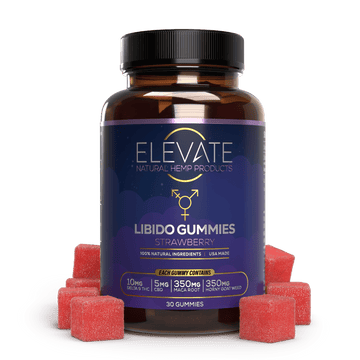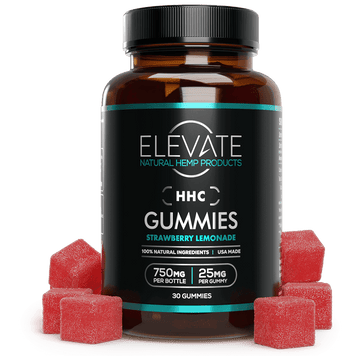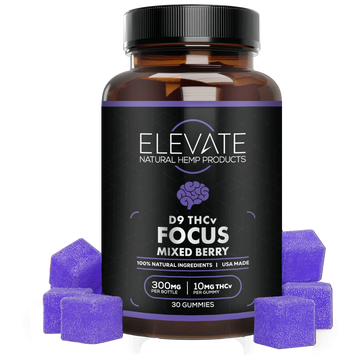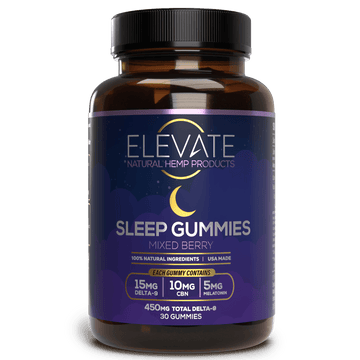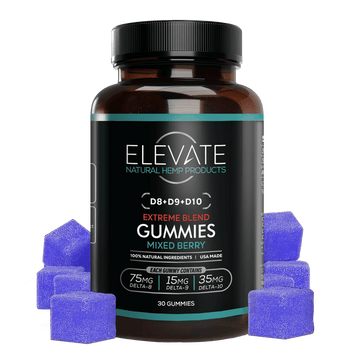THC gummies are everywhere, and for good reason. They're a tasty, discreet, and simple way to try cannabis. But just because they look like candy doesn't mean you can treat them that way. The experience is much different than other THC products, with a delayed start and a much longer duration. To have the best time, you need to know what you're getting into. We'll walk through all the potential effects of THC gummies, from the enjoyable highs to the possible side effects, so you feel prepared and in control.
So, What Exactly Are THC Gummies?
THC gummies are essentially candy infused with THC, the psychoactive compound found in cannabis. The process of making these gummies typically involves extracting THC oil or distillate from cannabis plants and then incorporating it into the gummy mixture. This ensures an even distribution of THC throughout the product, providing a consistent dosage in each piece.
People use THC gummies for various reasons, including relaxation, pain relief, and recreational purposes. They offer a smoke-free alternative to consuming cannabis, which appeals to many users.
What Are the Potential Effects of THC Gummies?
While THC gummies can be a fun and convenient way to consume cannabis, they do come with some side effects that users should be aware of. Here are some of the most common ones:
Dry Mouth (Cottonmouth): One of the most frequently reported side effects of THC consumption, including gummies, is dry mouth. THC can interfere with the body's ability to produce saliva, leaving users with a parched feeling. Sipping water or sucking on hard candy can help alleviate this discomfort.
Red Eyes: THC can cause blood vessels in the eyes to expand, leading to red or bloodshot eyes. This effect is temporary and not harmful, but it can be a giveaway that someone has consumed THC. Over-the-counter eye drops can help reduce redness if it becomes bothersome.
Increased Heart Rate: Some people may experience an elevated heart rate after consuming THC gummies. This is due to the way THC interacts with the endocannabinoid system, which can cause temporary cardiovascular changes. If you have a pre-existing heart condition, it's a good idea to consult with a healthcare professional before consuming THC products.
Dizziness and Lightheadedness: Especially for those new to THC or when consuming higher doses, dizziness and lightheadedness can occur. This side effect is usually short-lived but can be unpleasant. It's best to sit or lie down until the feeling passes, and always start with a low dose to gauge your tolerance.
Impaired Motor Skills: THC affects the brain's ability to coordinate movement, which can result in impaired motor skills. Activities that require precise movements, like driving or operating machinery, should be avoided while under the influence of THC. Always use THC gummies in a safe environment where you don't need to perform tasks that require full coordination.
Understanding these common side effects can help users make informed decisions about consuming THC gummies. While these effects are usually mild and temporary, it's important to be aware of how your body responds to THC, especially if you're new to cannabis edibles. By starting with a low dose and giving your body time to adjust, you can enjoy the benefits of THC gummies while minimizing any potential discomfort.
Desired Psychological Effects
Beyond the physical side effects, THC gummies are known for their impact on your mind and mood. Many people seek out these effects for recreation and relaxation. Understanding what to expect can help you have a more positive and controlled experience. The psychological effects can range from pleasant feelings of happiness to shifts in how you perceive the world around you. These changes are a direct result of how THC interacts with your brain's cannabinoid receptors, influencing everything from mood to memory. Let's look at the most common psychological effects people experience.
Feelings of Euphoria and Relaxation
One of the primary reasons people enjoy THC gummies is for the sense of euphoria and relaxation they can provide. As noted by Medical News Today, "THC gummies produce short-term euphoria, altered perception, and relaxation." This can feel like a wave of calm washing over you, melting away stress and leaving you with a happy, uplifted feeling. It’s this peaceful state that makes gummies a popular choice for unwinding after a long day or for managing feelings of stress. For those looking to achieve a specific state of calm, products like THC gummies for sleep are often formulated with complementary ingredients to help guide your experience toward deep relaxation.
Altered Perception of Time and Senses
Have you ever felt like time was slowing down or speeding up after consuming a gummy? That’s a classic effect of THC. It can alter your perception of time and heighten your senses, making music sound richer, food taste more delicious, and colors appear more vibrant. This happens because THC encourages your brain to release dopamine, which is linked to pleasure and reward. According to Northwestern Medicine, it also "affects parts of your brain that help you make new memories and process information," which contributes to these perceptual shifts. This sensory enhancement is a big part of the recreational appeal of THC for many users.
Potential Cognitive Side Effects
While the psychological effects can be enjoyable, it's also important to be aware of the cognitive side effects. THC can temporarily change how your brain processes information, which can affect your ability to think clearly and remember things. These effects are usually temporary and fade as the THC wears off, but they are a key reason why you should never drive or perform complex tasks after consuming a gummy. Knowing about these potential changes helps you plan your experience safely and responsibly, ensuring you’re in the right setting to simply relax and enjoy yourself without any added pressure.
Difficulty Concentrating
If you have a big project to finish or need to stay sharp, it’s probably not the best time for a THC gummy. One of the well-documented cognitive side effects is difficulty concentrating. You might find your mind wandering easily or struggle to follow a complex conversation or task. This is because THC can interfere with the brain functions responsible for focus and executive control. This effect is a key part of what experts refer to as cognitive impairment, which also includes "decreased memory, and altered time awareness." It’s best to save your gummy for a time when you can fully disconnect and don’t have any demanding mental tasks on your plate.
Short-Term Memory Problems
Forgetting what you were about to say mid-sentence is a classic, almost cliché, effect of THC. This is due to its impact on short-term memory. While under the influence of THC, your brain may have a harder time forming and retrieving recent memories. This can be frustrating or just a funny part of the experience, depending on the situation. It's important to note that while this effect is temporary for most occasional users, some research suggests that "long-term and frequent use of cannabis can affect your attention and memory" more persistently. This is another reason why mindful consumption and moderation are so important for a healthy relationship with cannabis.
Potential Adverse Psychological Reactions
For some people, particularly with higher doses, the psychological effects of THC can be unpleasant. Instead of feeling relaxed and happy, they might experience anxiety or paranoia. These adverse reactions are often linked to taking too much, too soon, especially with edibles, which have a delayed onset. The key to avoiding a negative experience is to be cautious with your dosage and to consume THC in a safe, comfortable environment where you feel at ease. If you're new to THC or trying a new product, having a trusted friend with you can also make a big difference.
Anxiety, Panic Attacks, and Paranoia
While many use THC to ease anxiety, it can sometimes have the opposite effect. High doses of THC can trigger feelings of anxiety, fear, and paranoia in some individuals. This is one of the most common negative psychological reactions and can be very distressing. You might feel overly suspicious of others or caught in a loop of worried thoughts. These feelings are typically temporary, but they can be intense. To minimize the risk, always start with a very low dose—think 2.5mg or 5mg of THC—and wait at least two hours to see how you feel before considering taking more. Your environment also plays a huge role, so choose a calm and familiar setting.
Confusion and Hallucinations
In rare cases, consuming a very high dose of THC can lead to more severe symptoms like intense confusion or even hallucinations. According to American Addiction Centers, "overdosing on THC edibles can result in more severe symptoms than smoking, including hallucinations and severe anxiety." This is often the result of accidental overconsumption, where someone eats a gummy, doesn't feel anything after an hour, and decides to eat more. Because edibles can take up to two hours to kick in, this can lead to a much stronger and more overwhelming experience than intended. Patience is your best friend when it comes to edibles.
Common Physical Side Effects
In addition to the more well-known side effects like dry mouth and red eyes, THC can sometimes cause other physical reactions. These are often dose-dependent, meaning they are more likely to occur if you consume a larger amount of THC. Most of these effects are mild and temporary, but they can be uncomfortable. Being aware of them can help you manage the experience and understand what’s happening if you start to feel a bit off. As always, listening to your body and starting with a low dose is the best way to ensure a comfortable and positive experience with THC gummies.
Nausea and Vomiting
This one can be a bit confusing, as cannabis is often used to *treat* nausea and vomiting. However, for some people, particularly with very high doses of THC, it can have the opposite effect and actually cause these symptoms. This paradoxical reaction is more common than you might think and is a clear sign that you've consumed too much for your system to handle comfortably. If you ever feel nauseous after taking an edible, it’s a good idea to sit or lie down, sip some water, and wait for the feeling to pass. It’s also a strong signal to try a much lower dose next time.
Why Do People Use THC Gummies?
Despite the potential side effects, many people find that the benefits of THC gummies outweigh the downsides.

These edibles offer a smoke-free option for consuming cannabis, which is appealing to those who want to avoid the respiratory risks associated with smoking. THC gummies also provide a more controlled and discreet way to consume THC, allowing users to enjoy the effects without drawing attention.
Additionally, the effects of THC gummies tend to last longer than those of smoked cannabis, providing extended relief from pain, anxiety, or other symptoms. This makes them a great option for individuals seeking prolonged effects without the need to frequently re-dose.
Targeting Specific Wellness Goals
Beyond general relaxation, many people are turning to THC gummies to help with specific aspects of their daily lives. This targeted approach allows for a more intentional and personalized cannabis experience, whether you're looking to wind down at night or find a little extra motivation during the day. Instead of a one-size-fits-all effect, users can select products formulated to align with their particular wellness objectives, making cannabis a more integrated part of their routine. This shift shows how people are thinking more critically about how they use cannabis, moving towards products that fit specific moments and needs.
THC for Sleep, Focus, and Energy
Many people find that THC gummies help them unwind before bed, especially if discomfort is keeping them awake. Research suggests that cannabis can improve sleep for individuals dealing with chronic pain, making it a popular choice for those seeking a more restful night. In response to this, some brands now offer products specifically formulated to support rest. For instance, you can find THC for sleep that combines THC with other calming ingredients. Similarly, other formulations are designed to help with focus or provide a gentle lift in energy, offering a tailored experience for different needs throughout the day.
Exploring Potential Therapeutic Benefits
The conversation around THC is also expanding into its potential therapeutic uses. While much of the research is still developing, early studies and anecdotal reports point to some promising applications for managing symptoms of various health conditions. It's an exciting field where science is beginning to catch up with centuries of traditional use, offering new possibilities for those seeking alternative ways to manage their health and well-being. This exploration is helping to reshape perceptions of cannabis, moving it from a purely recreational substance to one that may hold significant value in a wellness context.
Managing Symptoms of Multiple Sclerosis
For individuals living with Multiple Sclerosis (MS), managing symptoms like muscle stiffness and pain is a daily challenge. Some studies indicate that orally consumed cannabis, such as in gummy form, may help reduce spasticity and pain associated with the condition. This potential for relief offers a supplemental option for those looking to improve their quality of life. While THC gummies are not a cure, they represent an area of interest for symptom management that continues to be explored by both patients and researchers seeking effective ways to handle the complexities of MS.
Reducing Seizures in Certain Types of Epilepsy
The potential for cannabis to help with certain types of epilepsy is one of the most studied areas of its therapeutic use. While scientists are making progress in understanding how cannabinoids might reduce seizures, it's important to note that more research is needed, particularly for non-medical cannabis products like THC gummies. The focus has largely been on CBD, but the role of THC is also being investigated. This is a promising field of study, but anyone considering cannabis for epilepsy should work closely with a medical professional to understand the current evidence and potential risks involved.
Alleviating Cancer-Related Symptoms
People undergoing cancer treatment often face a range of difficult symptoms, from chronic pain and nausea to loss of appetite and trouble sleeping. Some individuals turn to cannabis products, including THC gummies, to help manage these side effects. The goal isn't to treat the cancer itself, but to alleviate symptoms that can significantly impact their daily comfort and well-being. By potentially easing nausea or stimulating appetite, THC gummies can offer a form of supportive care that complements conventional medical treatments, helping patients feel more comfortable throughout their journey.
What Influences Your Gummy Experience?
THC gummies can be a fun and enjoyable way to consume cannabis, but various factors can influence the side effects you might experience. Knowing these factors can help you make better decisions and have a more pleasant experience.
THC Concentration and Dosage: The amount of THC in each gummy plays a significant role in the effects you feel. Higher doses tend to produce stronger effects and potentially more pronounced side effects. It's always wise to start with a low dose, especially if you’re new to THC gummies, and gradually increase it as you become more comfortable with how your body reacts.
Individual Tolerance and Sensitivity: Everyone’s body responds differently to THC. Some people might have a higher tolerance and need more THC to feel the effects, while others may be more sensitive and experience strong effects with a small amount. Your tolerance can be influenced by factors such as genetics, body weight, and previous cannabis use.
Frequency of Use: Regular users might develop a tolerance to THC, meaning they require higher doses to achieve the same effects. Conversely, infrequent users may find that even a small dose can produce strong effects. Taking regular breaks from THC can help prevent building a high tolerance.
Presence of Other Substances: Combining THC with other substances, such as alcohol or other drugs, can amplify side effects and increase the risk of adverse reactions. It's generally best to avoid mixing substances to maintain control over the experience and reduce the likelihood of unwanted effects.
How to Ensure a Positive Experience
While some side effects are common with THC gummies, there are ways to minimize them and ensure a more pleasant experience.
Start with a Low Dose: Beginning with a small amount allows you to gauge your body's reaction to THC. You can always take more if needed, but starting low reduces the risk of overwhelming side effects.
Stay Hydrated: Drinking plenty of water can help counteract dry mouth and other dehydration-related side effects. Keep a water bottle handy while consuming THC gummies.
Avoid Mixing with Other Substances: Sticking to just THC can help you better understand its effects and avoid the complications that can arise from mixing it with other substances. This approach keeps your experience more predictable and safer.
Use in a Safe and Comfortable Environment: Choose a familiar and relaxing setting for consuming THC gummies. Being in a comfortable environment can help you stay calm and enjoy the experience, reducing the likelihood of anxiety or paranoia.
When to Seek Medical Help: If you experience severe side effects such as extreme anxiety, chest pain, or difficulty breathing, it’s important to seek medical assistance immediately. These reactions are rare but can occur, especially if you consume a high dose or mix THC with other substances.
FAQs
Q1. How long do the effects of THC gummies last?
The effects of THC gummies can last anywhere from 4 to 8 hours, depending on factors such as dosage, individual metabolism, and tolerance. It typically takes 30 minutes to 2 hours to start feeling the effects.
Q2. Can THC gummies cause addiction?
While THC itself can be habit-forming for some individuals, the risk of addiction is relatively low compared to other substances. However, regular and heavy use can lead to dependence, so it’s important to use THC gummies responsibly.
Q3. What should I do if I experience severe side effects?
If you encounter severe side effects such as extreme anxiety, chest pain, or difficulty breathing, seek medical help immediately. These symptoms are uncommon but can occur, especially at high doses or when combined with other substances.
Q4. Are THC gummies legal in my state/country?
The legality of THC gummies varies by location. In some places, they are legal for recreational or medicinal use, while in others, they may be prohibited. Check your local laws and regulations to ensure compliance before purchasing or consuming THC gummies.
Using THC Gummies Safely and Responsibly
THC gummies offer a delightful way to enjoy the benefits of cannabis, but being mindful of the potential side effects and how to manage them is crucial. By considering factors like dosage, tolerance, and frequency of use, you can have a more controlled and enjoyable experience. Remember to start with a low dose, stay hydrated, avoid mixing substances, and choose a safe environment for consumption.
Using THC gummies responsibly ensures that you can enjoy their benefits while minimizing the risk of adverse effects. Stay informed, cautious, and open to adjusting your approach based on how your body responds.
The Risk of Overconsumption with Edibles
While THC gummies offer a predictable dose, one of the biggest risks, especially for newcomers, is accidentally taking too much. This is almost always tied to the way our bodies process edibles. Unlike smoking or vaping, where the effects are felt within minutes, edibles take a much slower path through your digestive system. This delayed onset can be tricky, but understanding it is the key to having a good experience and avoiding an uncomfortable one. Knowing what to expect and how to react is essential for responsible consumption.
Why the Delayed Onset Is a Major Factor
The golden rule with edibles is "start low and go slow," and there's a good reason for it. Because gummies have to be digested, it can take anywhere from one to three hours for you to feel the full effects. This delay can easily trick you into thinking your gummy isn't working. Impatience kicks in, you take another one, and then suddenly, the first dose hits you right as the second one is starting to process. This is how most people accidentally overconsume. The best approach is to take your desired dose and then wait at least two hours before even considering taking more. Patience is your best friend here.
Recognizing Symptoms of an Overdose
Taking too much THC isn't typically life-threatening, but it can be an incredibly unpleasant experience. The symptoms of overconsumption are much more intense than the mild side effects of a standard dose. You might experience severe nausea, paranoia, or even hallucinations. Some people have panic attacks or find it difficult to move or coordinate their bodies. If this happens, the best thing to do is find a safe, calm space, stay hydrated, and remind yourself that the feeling will pass. Having a trusted friend nearby can also make a huge difference in managing the anxiety that can come with it.
Understanding Long-Term Health Risks
For those who use THC gummies regularly, it's important to be aware of the potential long-term health effects. While cannabis is often seen as a relatively safe substance, consistent, heavy use isn't without its risks. These concerns are primarily associated with high-frequency consumption over many years, particularly starting from a young age. Being informed about these potential outcomes helps you make conscious decisions about your use and maintain a healthy relationship with cannabis products, ensuring you can continue to enjoy them safely for years to come.
Lasting Cognitive Impairment
One of the most discussed long-term risks is the potential for lasting cognitive impairment. This refers to difficulties with things like memory, learning, and attention. Research from institutions like Northwestern Medicine suggests that regular, long-term cannabis use can lead to these changes. It's important to note that this is linked to consistent and heavy consumption patterns. Taking breaks and practicing mindful use can be helpful strategies for mitigating this risk and keeping your mind sharp while still enjoying the benefits you seek from products like THC gummies.
Impact on Brain Development in Young People
This is a critical point of caution: THC can significantly affect brain development in children, teenagers, and young adults. The brain continues to develop until about age 25, and introducing THC during this formative period can alter its structure and function. This can lead to a higher risk of developing lasting mental health issues. Because of this, it is strongly advised that individuals under the age of 25 avoid cannabis products. Responsible brands are committed to ensuring their products, from Delta 8 gummies to CBD oils, are only sold to and used by adults.
Worsening of Mental Health Disorders
If you have a pre-existing mental health condition, it's important to be cautious with THC. Some studies suggest a link between long-term cannabis use and a higher risk of certain mental disorders, including schizophrenia. For individuals who are already managing a condition, THC can sometimes worsen symptoms like anxiety or paranoia. It's always a good idea to speak with a healthcare professional to understand how THC might interact with your specific health profile before incorporating it into your wellness routine. Your mental well-being should always be the top priority.
Increased Risk of Psychosis
For a small subset of the population, regular and high-potency THC use can increase the risk of psychosis, a condition where a person loses touch with reality. This risk is significantly higher for individuals who have a personal or family history of psychotic disorders. According to Medical News Today, this predisposition plays a major role. If this sounds like you or someone in your family, it may be best to avoid high-THC products. Understanding your own genetic vulnerabilities is a key part of using cannabis responsibly and safely.
Cannabinoid Hyperemesis Syndrome (CHS)
Though rare, Cannabinoid Hyperemesis Syndrome (CHS) is a condition to be aware of if you are a long-term, heavy cannabis user. CHS is characterized by severe and uncontrollable cycles of vomiting, nausea, and stomach pain. Interestingly, many people with CHS find that their symptoms are temporarily relieved by hot showers or baths. The only known way to stop CHS permanently is to cease cannabis use. While it doesn't affect most users, it's a serious condition that highlights the importance of moderation and listening to your body's signals.
Key Safety Precautions
Enjoying THC gummies is all about creating a positive and safe experience. Beyond understanding dosage and potential side effects, there are a few practical safety measures everyone should take. These simple steps can prevent accidents, ensure you're getting a quality product, and help you avoid unwanted interactions. Think of them as your go-to checklist for responsible consumption. Following these precautions will allow you to relax and enjoy the benefits of your gummies with peace of mind, knowing you've covered all your bases.
Safe Storage to Prevent Accidental Ingestion
THC gummies often look and taste just like regular candy, which makes them a serious risk for accidental ingestion by children and pets. A child or animal consuming a gummy meant for an adult can lead to a medical emergency. Always store your products in a secure, locked container that is clearly labeled and kept far out of reach. Think of it like you would any medication. Products like our Mushroom Gummies and THC edibles should be treated with the utmost care to ensure the safety of everyone in your household.
The Problem of Inconsistent THC Concentration
In an unregulated market, it can be difficult to know exactly how much THC is in an edible. Some products may contain significantly more THC than what's stated on the label, leading to unexpectedly strong effects. This is why it's so important to purchase from a reputable source that provides transparent, third-party lab testing for all their products. These lab reports, often called Certificates of Analysis (COAs), verify the exact cannabinoid content, ensuring you get a consistent and reliable dose every single time you enjoy a gummy.
Potential Interactions with Medications
THC can interact with other substances, including alcohol and certain prescription medications. Combining THC with alcohol can intensify the effects of both, leading to greater impairment. Furthermore, THC can interfere with how your body metabolizes certain drugs, potentially making them less effective or increasing their side effects. If you are taking any medications, especially those with a "grapefruit warning," it is crucial to talk to your doctor or a pharmacist before using THC gummies. They can provide guidance on whether it's safe for you.
Key Takeaways
- Patience is key with edibles: Remember that THC gummies can take up to two hours to kick in. Avoid the common mistake of taking a second dose too soon; give your body ample time to respond before deciding if you want more.
- Start with a low dose to find your sweet spot: Your experience is directly tied to how much you take. Begin with a small amount, like 5mg or less, to understand your personal tolerance and prevent feeling overwhelmed.
- Prioritize safety through smart choices: Ensure a predictable and positive experience by purchasing from reputable brands that provide third-party lab tests. Always keep your gummies securely stored away from children and pets.

